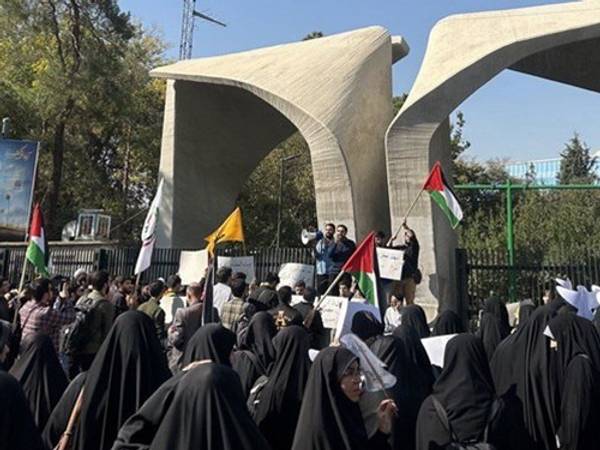The Islamic Republic enlists foreign students, training them as ideological emissaries for deployment in other nations, according to an audio file leaked on Sunday.
The speaker, purported to be Hamidreza Haddadpour, head of the International Affairs Center for Supreme Leader Ali Khamenei’s university representatives network, reveals that recruiting foreign students establishes an ideological foothold for the Islamic Republic in the region and beyond, citing past success.
The speaker notes that many of these students are the offspring of “influential individuals in their countries who may inherit their fathers' positions.”
In the same speech, Haddadpour discloses that several meetings at Khamenei’s office led to the decision, under Khamenei's directive, to hire international students on a contractual basis. Notably, the job title "cultural secretaries" was deliberately chosen to avoid causing sensitivities in their respective countries, steering clear of titles like propagandist or teacher.
He also says Ghasem Soleimani, the former commander of the Revolutionary Guards’ extraterritorial arm, the Qods (Quds) Force, had been adamant that the Islamic Republic should pay serious attention to the role international students in advancing the Islamic Republic's cause in other nations. Soleimani had actively advocated for the government to address obstacles hindering the involvement of international students and had written letters to that effect.
The audio file was part of a collection of classified documents released by a hacker group called Ghiyam ta Sarnegouni (Uprising till Overthrow), affiliated with the People's Mojahedin Khalq Organization (MEK). They published these documents on their Telegram account on Sunday.
Ghiyam ta Sarnegouni has on several previous occasions released classified documents which it claims were acquired by gaining control over hundreds of websites and servers of various government and state organizations such as the Ministry of Science in September. In a Telegram post a few hours after releasing the audio file and other documents, the hacker group said it still had control over the website of Khamenei representatives’ network in universities (nahad.ir).
Iran's Health Minister Bahram Eynollahi emphasized the significance of providing education to foreign students, stating that the Islamic Republic could "export the Islamic Revolution" through them. "Foreign students trained in Iran have become effective propagandists for the Islamic Republic in their countries,” he told a meeting of the government ministers in the Supreme Council of the Cultural Revolution in September 2021.
The Islamic Republic provides ample study opportunities at its numerous seminaries and Al-Mustafa International University in Qom, a state-funded Shiite seminary functioning like a university under Khamenei's control.
Al-Mustafa University, with branches in over fifty countries, sponsors hundreds of foreign students annually, from China to Africa and Latin America, enabling them to study in Iran. The intention is for these students to return to their respective countries and promote Iran’s version of Shiism.
In 2020, the university received a budget of nearly 5 trillion rials, approximately $100 million based on the official exchange rate at that time. This amount surpasses the budget of any other university in Iran.
The United States Treasury imposed sanctions on Al-Mustafa University in December 2020 for its alleged involvement in recruiting Afghan and Pakistani students to fight in Syria. Canada also imposed sanctions on Al-Mustafa University for recruiting foreign fighters in October 2022.
In early September, the Islamic Republic agreed to provide tuition to members of Iraq's Shiite Hashd al-Shaabi militias at Tehran University. The decision was made during a meeting attended by the head of Supreme Leader Ali Khamenei's representatives' network in universities and the education deputy of Hashd al-Shaabi, as announced by the university's public relations office.
